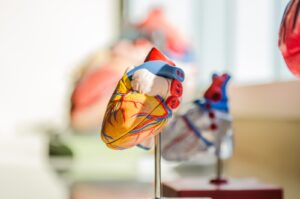International team wins £30m to end early death from heart diseases
An international team of researchers has won £30m to develop an injectable cure for genetic heart conditions that kill young people in the prime of their lives, as part of the British Heart Foundation (BHF)’s Big Beat Challenge.
The global award is the largest in the charity’s 60-year history and presents a “once in a generation opportunity” to provide hope for families struck by these killer diseases.
The winning team, CureHeart, is composed of a global group of scientists from the UK, the US and Singapore, whose vision is to develop the first cures for inherited heart muscle diseases. To achieve this, the team will pioneer revolutionary and ultra-precise gene therapy technologies that could silence or edit the faulty genes that cause these deadly conditions.

A key member of CureHeart, Professor Stuart Cook of the National Heart Centre Singapore will collaborate with team members from the University of Oxford and Harvard University to explore the role of a protein, interleukin 11 (IL11), in genetic heart muscle disease using preclinical models and antibody therapies developed in Singapore.
In 2021, one in three deaths in Singapore was due to heart diseases or stroke. It is estimated that 1,000 Singaporeans die from sudden cardiac arrest every year, about half of whom are below 60 years old. Inherited heart muscle diseases can cause the heart to stop suddenly, or cause progressive heart failure in young people.
It is also estimated that one in 250 people worldwide carry faulty genes that can cause genetic heart muscle diseases, with a 50 percent risk that they will pass them on to each of their children. In many cases, multiple members of the same family will develop heart failure, need a heart transplant, or die prematurely from sudden cardiac death at a young age. Current treatments do not prevent the condition from progressing.
The international team will take the revolutionary gene-editing technology of CRISPR to the next level by deploying ultra-precise techniques, called base and prime editing, in the heart for the first time. These ground-breaking techniques use ingenious molecules that act like tiny pencils to rewrite the single mutations that are buried within the DNA of heart cells in people with genetic cardiomyopathies.
Professor Cook said: ‘Genetic heart muscle diseases are serious cardiovascular diseases, responsible in cardiac arrest in young people. I am honoured to play a part in this opportunity to help put an end to the suffering caused these conditions. I am especially proud of the research discoveries made by my team in Singapore at Duke-NUS and NHCS, which have helped lay some of the ground work underpinning CureHeart’s mission.’
Sir Patrick Vallance, Chief Scientific Advisor to the UK Government and chair of the BHF panel that selected the winning team, said: ‘CureHeart was selected in recognition of the boldness of its ambition, the scale of its potential benefit for patients with genetic heart muscle diseases and their families, and the excellence of the international team of participating researchers.’















